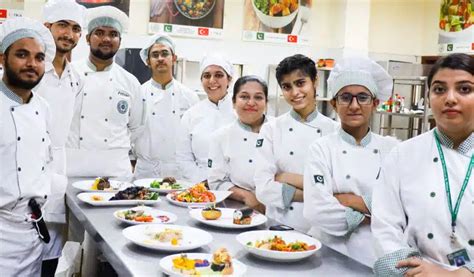A Comprehensive Guide to a Degree in Food and Beverage
A degree in food and beverage can open doors to a diverse and exciting career path. Whether you're passionate about culinary arts, hospitality, or the business side of the food industry, this degree equips you with the skills and knowledge needed to thrive. Let's explore the ins and outs of this rewarding academic pursuit.
What is a Food and Beverage Degree?
A food and beverage degree encompasses a broad range of subjects related to the food and drink industry. It's not just about cooking; it delves into the science of food, food safety and hygiene, culinary techniques, hospitality management, business operations, and marketing. The specific curriculum can vary depending on the institution and chosen specialization. You might find programs focusing on specific areas like:
- Culinary Arts: Emphasizing practical cooking skills and techniques.
- Hospitality Management: Focusing on the management and operations of restaurants, hotels, and other hospitality businesses.
- Food Science and Technology: Exploring the scientific aspects of food production, processing, and preservation.
- Beverage Management: Specializing in the selection, service, and management of alcoholic and non-alcoholic beverages.
What You'll Learn
A typical food and beverage degree program covers a variety of core subjects, including:
- Food safety and hygiene: Essential for maintaining high standards of cleanliness and preventing foodborne illnesses. HACCP (Hazard Analysis and Critical Control Points) principles are often taught.
- Culinary fundamentals: Basic cooking techniques, menu planning, and recipe development.
- Nutrition and dietetics: Understanding the nutritional value of food and its impact on health.
- Food costing and budgeting: Essential for managing finances in food service businesses.
- Restaurant management: Operations, staffing, customer service, and marketing strategies.
- Beverage knowledge: Wine, beer, spirits, and non-alcoholic beverage options, along with responsible service practices.
- Supply chain management: Understanding the flow of food from farm to table.
Career Opportunities
Graduates with a food and beverage degree enjoy a wide range of career options, including:
- Chef: Working in restaurants, hotels, or catering companies.
- Restaurant Manager: Overseeing the daily operations of a restaurant.
- Food and Beverage Director: Managing all aspects of food and beverage service in a hotel or other large establishment.
- Sommelier: Specializing in wine selection and service.
- Food Stylist: Preparing food for photography or film.
- Food Critic: Reviewing restaurants and other food establishments.
- Catering Manager: Planning and executing catering events.
- Entrepreneur: Starting your own food-related business.
Choosing the Right Program
When choosing a food and beverage degree program, consider:
- Accreditation: Look for programs accredited by reputable organizations.
- Faculty: Experienced and passionate instructors make a big difference.
- Facilities: State-of-the-art kitchens and other facilities enhance the learning experience.
- Internships: Practical experience is invaluable. Seek programs that offer internship opportunities.
Is a Food and Beverage Degree Right for You?
A food and beverage degree is an excellent choice if you are:
- Passionate about food and drink.
- Interested in the hospitality industry.
- Creative and detail-oriented.
- A strong communicator and team player.
- Enjoy working in a fast-paced environment.
In conclusion, a degree in food and beverage offers a fulfilling path for those with a passion for food and the hospitality industry. With hard work and dedication, you can build a successful and rewarding career in this dynamic field. Remember to research different programs and find the best fit for your skills and interests.
